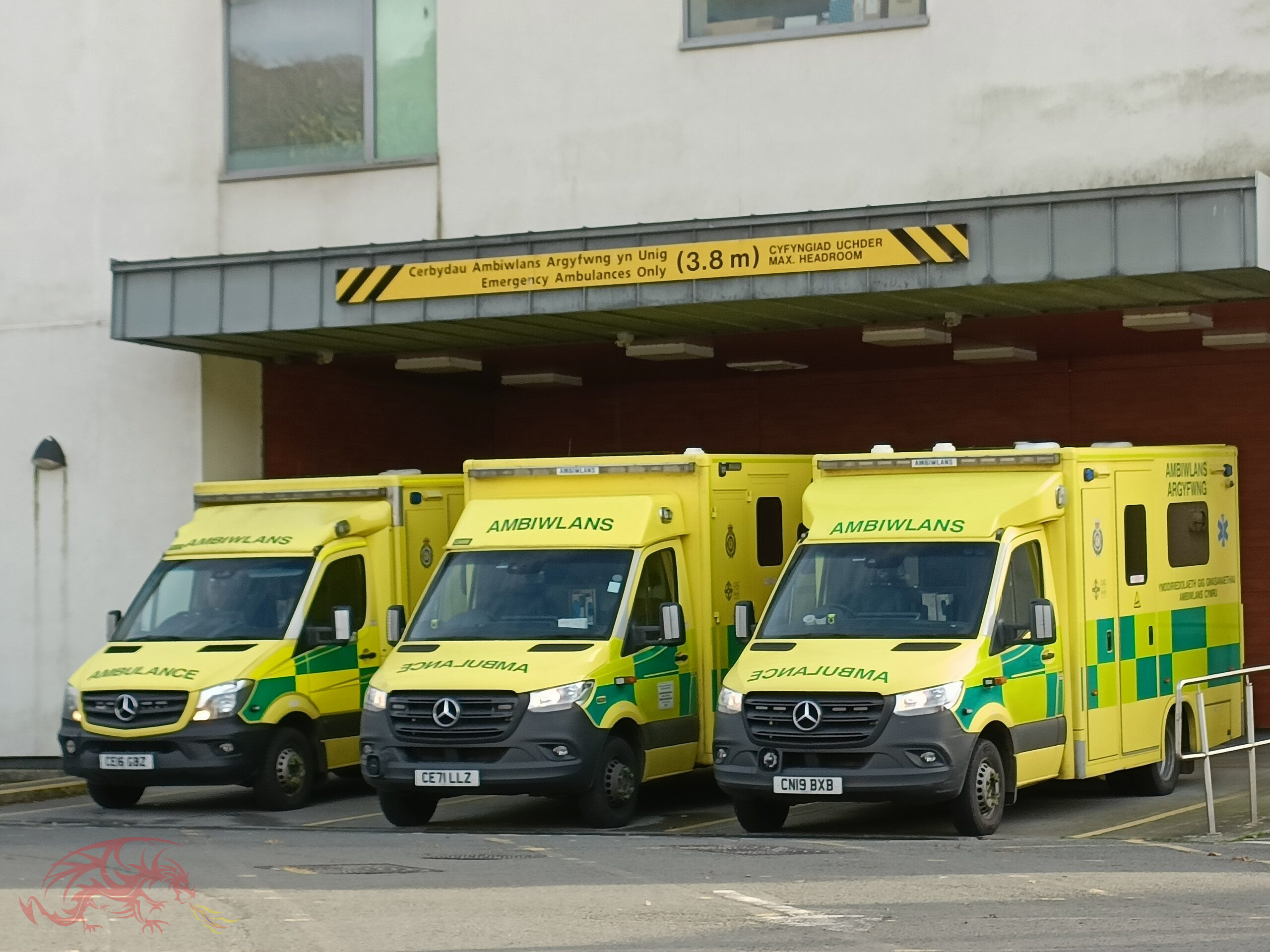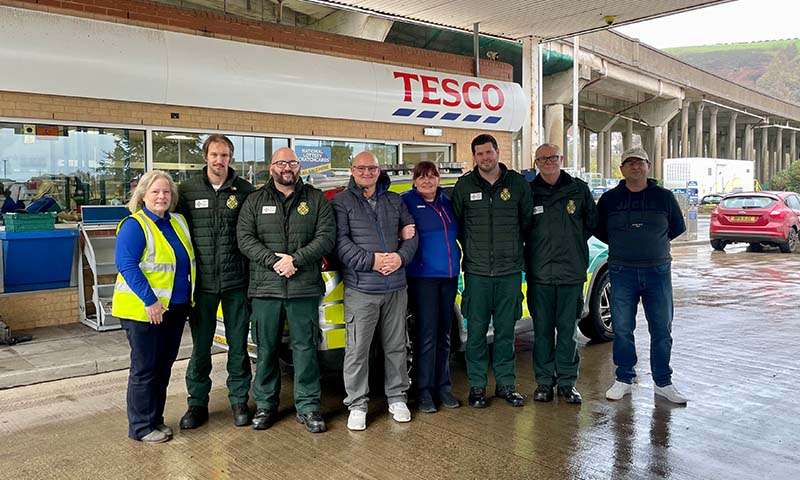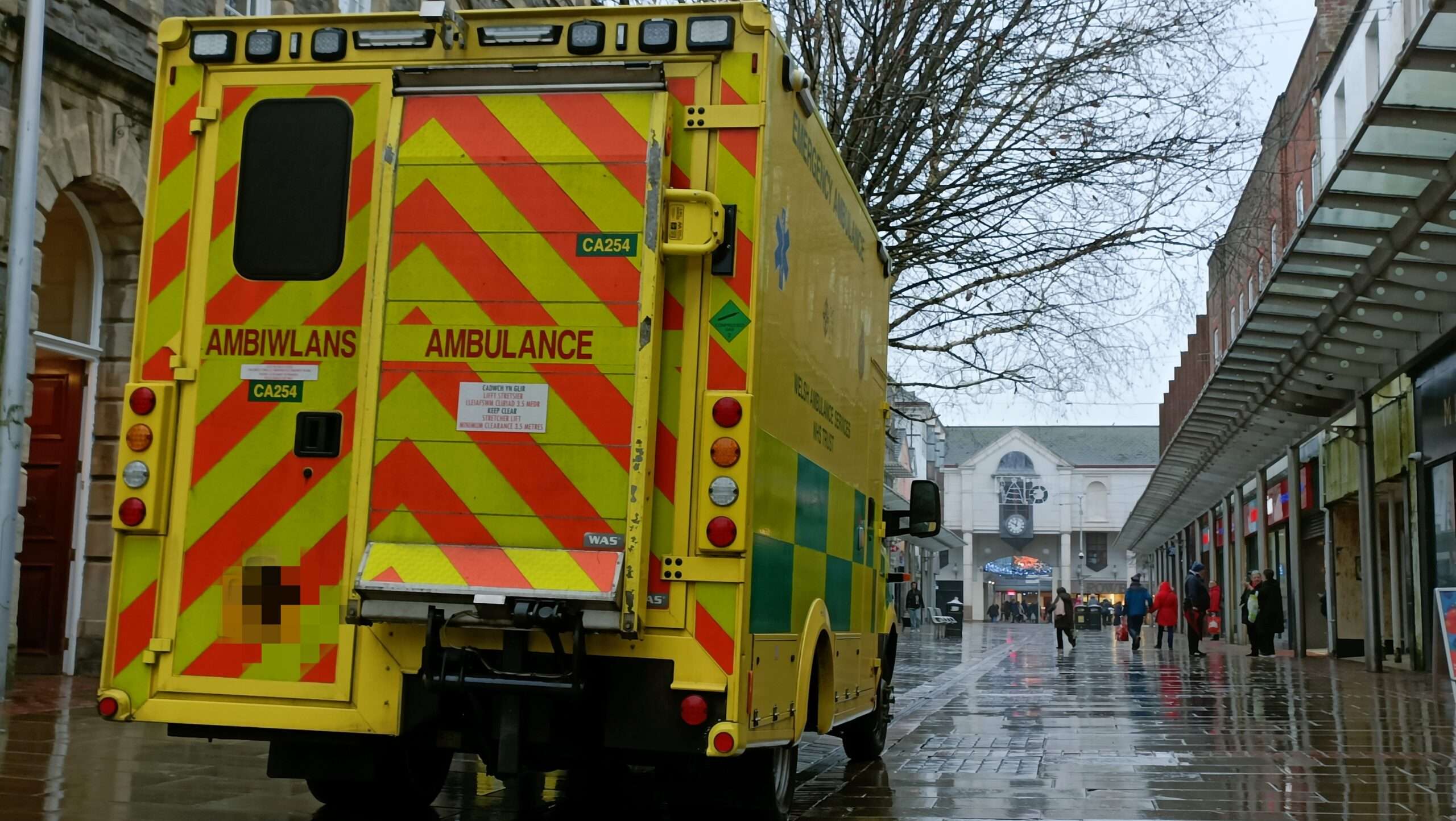Community Welfare Responders (CWRs) are trained by the ambulance service to support the delivery of urgent care for patients in their own homes across Wales.
Wearing an ambulance service uniform but driving their own private vehicle, they are sent to 999 calls in their community to determine if the patient requires an ambulance response.
CWRs take an initial set of observations, including heart rate and oxygen levels, the results of which are sent to clinicians in the Trust’s control room.
Clinicians will use the up-to-the-minute information to determine the best course of action for the patient, which could be dispatching an ambulance – or signposting the patient to their GP or other healthcare provider.
Jennifer Wilson, National Volunteering Manager at the Welsh Ambulance Service, said: “We are really excited to be able to launch this new volunteering position.
“CWRs provide an ‘eyes on’ service to patients when an ambulance response may be delayed, or even unnecessary.
“They work closely with the control room clinicians, who will determine the most appropriate pathway for the patient’s specific needs.
“The commitment of our volunteers across the Wales is second-to-none, and we are extremely grateful to each and every one of them for their service, as I’m sure the communities that they serve are too.”
Since the Trust began trialling the initiative last October, 37% of patients that CWRs have attended have been treated and discharged at the scene without the need to send an ambulance.
Among the volunteers is Elizabeth Williams, from Newport, a project manager by background.
Elizabeth had no health and social care experience prior to joining the ambulance service.
“It think it’s a very valuable role,” she said.
“It gives us a valuable ‘eyes on’ just to check that somebody is okay.
“It adds resilience to the ambulance service because patients are being cared for and it means that more serious cases can go straight to an emergency ambulance.
“From a patient perspective it’s great because they are having a response instead of having to sit and wait whilst they worry.”
Gareth Elms, a retired environmental health officer from Port Talbot, is a CWR between Cross Hands and Bridgend.
Also a Community First Responder, Gareth jumped at the opportunity to join the trial.
“Because we’ve got a green uniform, people automatically think it’s the ambulance service and you can see the relief on their face,” he said.
“We once attended an incident and straight away you could see that the patient was more ill than we were led to believe.
“We did the observations, his oxygen was low, his heartbeat was low – in other words he was in a bad way.
“I spoke to our Clinical Support Desk, who were absolutely brilliant, and they gave me advice and instructions.”
The CWR initiative is part of the Trust’s broader Connected Support Cymru project, set up to help the Trust realise its long-term strategic ambitions.
Judith Bryce, Assistant Director of Operations, said: “Our CWR volunteers attend appropriate patients to provide information to remote clinicians in our Clinical Contact Centres.
“This enables patients to stay at home with the appropriate clinical support and monitoring, whilst we are able to support them during their time of need.
“CWRs ensure that our clinicians can provide the right advice and decisions on patient care, in the right place, every time.
“They play a vital role in the future of the Trust and are integral to strengthening our contribution to community resilience.”
The ambulance service is recruiting more than 600 CWRs over the next two years.
You do not need to have any previous medical training to become a CWR, and full training is provided.
However, volunteers must:
Possess a full UK driving licence (max 3 penalty points) and have access to a vehicle.
Be 18 or over
Be physically fit
Work well under pressure and remain calm in an emergency
Be proud of the community in which they live and want to give something back
Have free time to spare
For more information and to submit an expression of interest, visit:
Community Welfare Responders – Welsh Ambulance Services NHS Trust







